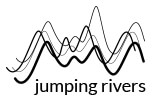Published: October 6, 2020
Don’t we all miss 2019 (blame Covid for the long delay in this post). The days of going to work and seeing your work colleagues face to face - and for some of you, attending one of our on-site training courses! 2019 was a great year for us. Not only have we broken new boundaries, we have recruited new full-time staff which have furthermore contributed to the glowing success of the company.










